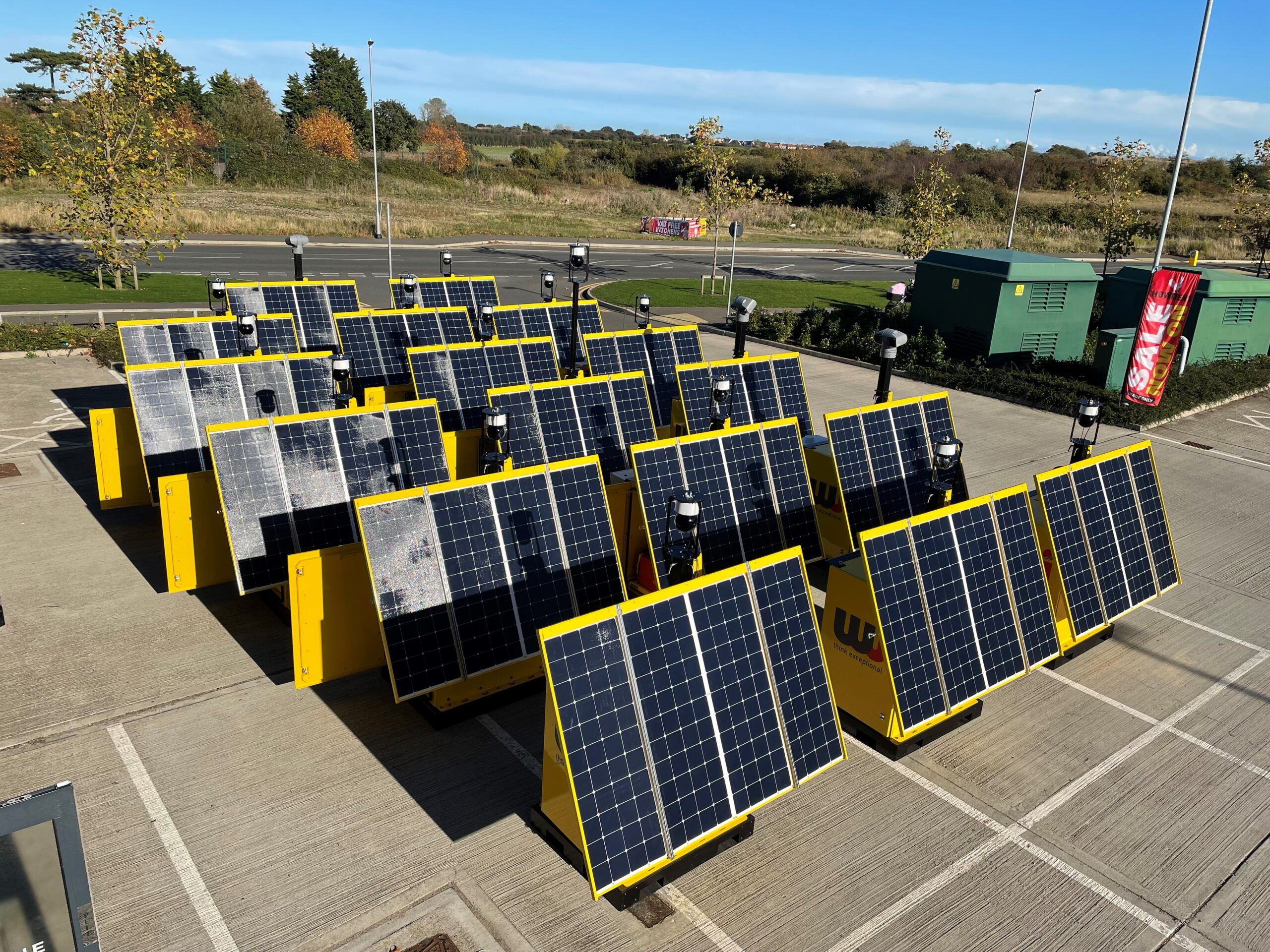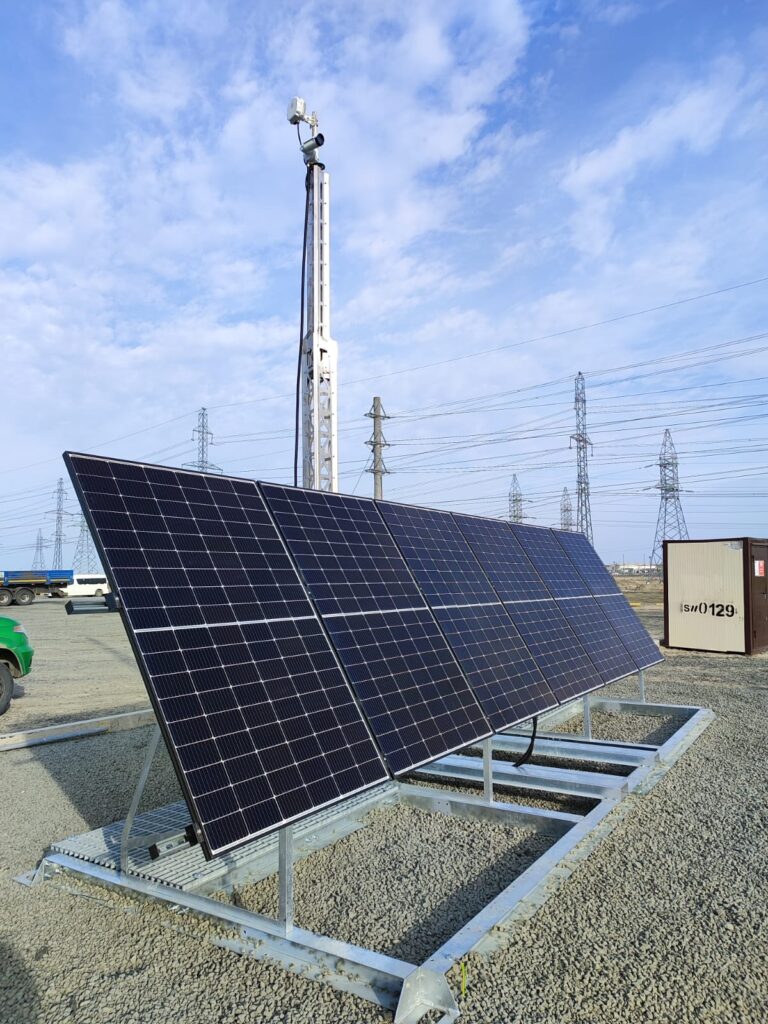Jump to:
Reducing Emissions and Costs: The Sustainable Future of Highway Infrastructure
The backbone of any modern economy relies on efficient and safe highway infrastructure. However, the traditional methods of powering and managing these vast networks often carry a heavy burden of both cost and environmental impact. From diesel generators humming beside temporary roadworks to the complex civil engineering required for grid connections, the industry has long sought more sustainable and economical alternatives. The answer lies in the strategic adoption of solar-powered technology, which is rapidly redefining the future of highway infrastructure by delivering significant reductions in emissions and operational costs.
At WJ Sunstone, we are at the forefront of this transformation. Our solar-powered surveillance and telecommunications platforms are not merely a green alternative; they are a robust, high-performance solution designed to meet the rigorous demands of highway projects while simultaneously helping clients achieve ambitious decarbonisation goals.

The Hidden Costs of Traditional Highway Infrastructure
When planning highway projects, the initial setup and ongoing power requirements often become a significant financial and environmental drain.
- Reliance on Fossil Fuels: Diesel generators are a common sight at temporary roadworks, providing power for lighting, CCTV, and communications. These generators consume vast amounts of fuel, contributing to air pollution, greenhouse gas emissions, and noise pollution. The carbon footprint of these operations is substantial, directly undermining sustainability targets.
- Expensive Grid Connections: Extending the national grid to remote or temporary highway sites involves extensive civil engineering works. This includes trenching, laying cables, and connecting to the main power supply, incurring considerable upfront costs, prolonged project timelines, and significant disruption to traffic flow and the surrounding environment.
- High Maintenance and Logistical Overhead: Diesel generators require regular refueling, servicing, and monitoring, leading to ongoing logistical challenges, increased labour costs, and potential safety risks for personnel working at the roadside. Furthermore, the constant transportation of fuel adds to the overall carbon footprint.
These traditional approaches are not just costly in monetary terms; they represent a hidden environmental debt that the highway industry is increasingly committed to rectifying.
Solar-Powered Solutions: A Paradigm Shift for Highways
WJ Sunstone’s off-grid, solar-powered platforms offer a compelling alternative, providing reliable power for Intelligent Traffic Solutions (ITS) with a drastically reduced environmental and economic impact.
- Zero Emissions at Source: Our systems harness the sun’s energy, converting it into clean, renewable electricity. During operation, they produce zero carbon emissions, directly addressing the urgent need to decarbonize highway infrastructure projects. This aligns perfectly with government mandates and corporate environmental, social, and governance (ESG) goals.
- Eliminating Fuel Consumption: By replacing diesel generators, our solar platforms remove the need for fossil fuels entirely. This not only eradicates the associated emissions but also eliminates ongoing fuel procurement, transportation, and storage costs, delivering immediate and substantial operational savings.
- Reduced Civil Engineering: Deploying a Solar CCTV System or similar off-grid platform requires minimal to zero civil works. This means no trenching, no extensive cable laying, and significantly faster installation times. Project managers can deploy vital surveillance and communication systems rapidly, reducing disruption and slashing initial setup costs.
This shift to solar power represents a fundamental change in how the industry approaches temporary and remote infrastructure, prioritizing both performance and planetary well-being.
Quantifiable Impact: Real-World Emission and Cost Reductions
The benefits of solar-powered highway infrastructure are not just theoretical; they are proven through successful deployments on major projects.
- A30 Cornwall Project: A Landmark Example: On the A30 highway upgrade in Cornwall, WJ Sunstone’s ARC System showcased the immense potential of off-grid solar technology. By deploying our autonomous units for surveillance and communications, the project achieved a remarkable 972 tonnes of CO2e reduction. This quantifiable impact demonstrates the power of solar solutions to significantly cut carbon footprints on large-scale infrastructure developments.
- Sustainable Power for Critical Systems: Our systems provide continuous, reliable power for a range of critical ITS components, including:
- CCTV Surveillance: Monitoring traffic flow, road conditions, and incident response without a grid connection.
- Variable Message Signs (VMS): Powering digital signs to inform drivers.
- Environmental Sensors: Running air quality or noise monitoring devices.
- Telecommunications: Providing vital data links for remote operations.
These deployments prove that opting for solar does not mean compromising on capability or reliability. Instead, it enhances both, while delivering significant environmental dividends.

The Future is Sustainable: A Path to Decarbonisation and Efficiency
The drive towards sustainable and cost-effective highway infrastructure is gaining unstoppable momentum. Organisations across the private and public sectors are actively seeking solutions that help them meet decarbonisation targets, reduce operational expenditure, and enhance safety.
WJ Sunstone’s solar-powered platforms represent a core component of this future. We offer solutions that are:
- Scalable: Adaptable for small-scale temporary works or large-scale, long-term infrastructure projects.
- Flexible: Easily redeployable to new locations as project needs evolve.
- Resilient: Engineered to perform in the harshest environmental conditions, ensuring uninterrupted service.
By embracing this innovative technology, the highway industry can pave the way for a future where infrastructure development and maintenance are synonymous with environmental responsibility and economic efficiency. The journey to net-zero carbon emissions is challenging, but with intelligent, solar-powered solutions, a sustainable future for our roads is not only possible but rapidly becoming the present.
Our Solar CCTV Systems
Solar CCTV System: A rugged, solar-powered surveillance solution designed for 24/7 monitoring in remote, off-grid locations, offering HD video, thermal imaging, and real-time alerts with zero reliance on traditional power infrastructure.
ARC System: A rapidly deployable, solar-powered CCTV and communications tower that provides wide-area monitoring, site-wide Wi-Fi, and anti-vandal features for temporary or long-term security needs.
RAFT System: A high-power, self-sustaining IoT and surveillance platform engineered for extreme environments, delivering clean energy and advanced connectivity without groundworks.